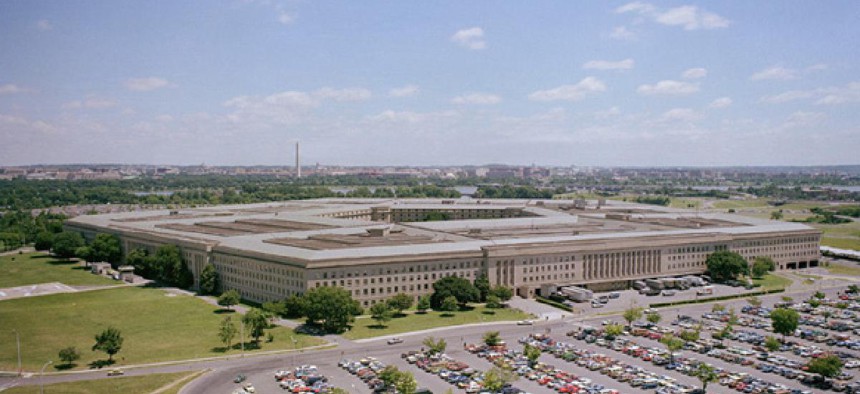
Defense Department
Military elevates handling of sex crimes
Higher-level officers will handle allegations of rape, sexual assault and other offenses.
The U.S. military is starting several new initiatives that defense leaders argued shows they are taking sex crimes in the ranks more seriously than ever.
Defense Secretary Leon Panetta and Chairman of the Joint Chiefs of Staff Martin Dempsey announced to members of Congress on Monday that, among several changes, the Defense Department will elevate the minimum rank of officer required to handle allegations of rape, sexual assault, and forcible sodomy, or attempted cases of those crimes.
Now those crimes will be overseen by the convening authority of a “Special Court Martial,” typically an officer with at least a rank of colonel or, in the Navy, a captain.
“Sexual assault has no place in the military. It is a violation of everything that the U.S. military stands for,” Panetta claimed in a rare press conference with lawmakers on Capitol Hill. “This is a strong package.”
Sexual assault has been a growing problem for the military, which has seen a spike in cases reported and prosecuted alongside the Defense Department's efforts to stop them. The Pentagon on Friday released its latest congressionally-mandated annual report on sexual assaults. For the period ending Sept. 30, 2011, there were 3,192 reported sexual assaults, a 1 percent increase from the previous year.
Criminal divisions of the services investigated 2,933 people last year, and 1,518 of the completed investigations were recommended for disciplinary action with 989 receiving some kind of punishment. Of those, 489 received courts-martial charges, and 187 received “non-judicial punishment,” common to the military but that have drawn ire from members of Congress.
“Sexual assault is not an issue of bad behavior. It is not an issue of bad judgment. It is a crime,” said Rep. Mike Turner, R-Ohio., cochair of the Military Sexual Assault Prevention Caucus. Turner cited one complaint in his district that he said “mirrors” many heard by members of Congress.
“We all have stories to tell,” Rep. Nikki Tsongas, D-Mass., the other cochair, said of “alarming statistics we hear over and over again.”
Panetta said sexual assault “remains a disincentive” for Americans to join the military.
“At the local unit level, sometimes these matters are put aside. They’re not followed up with,” Panetta said. The new rule requires any type of complaint received to be channeled up the higher chain of command for action.
Rep. Loretta Sanchez, D-Calif., chair of the Women in the Military Caucus, said the measures, some of which are contained in the defense authorization act under consideration, ensure “that the culture and the climate of our military changes.”
Dempsey added, “Our profession is based on trust and this particular crime erodes that trust.”
The Defense Department also will require special advanced training for military investigators, prosecutors, and those helping victims and witnesses, including those collecting evidence. Additionally, the service will require all troops on undergo sexual-assault awareness training within 14 days of entrance to active duty.
The announcement is the latest of several Defense Department steps taken in the past year to ramp up sexual-assault awareness and prevention, including speeding up the transfers of assault victims out of their units for protection and adding legal services worldwide for spouses and dependents. The Pentagon also increased training funds for military investigators and lawyers, set up a case-tracking database, and installed a two-star general to oversee its internal watchdog office.







